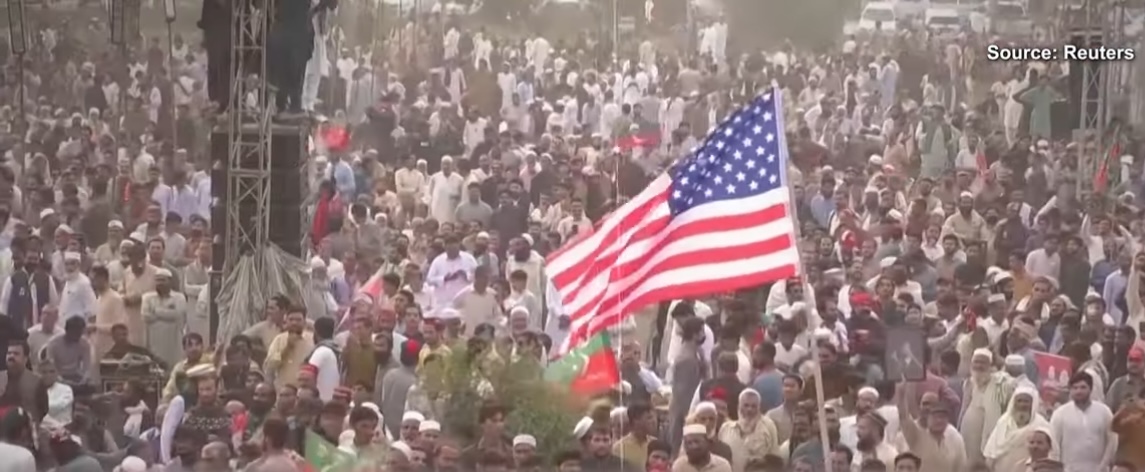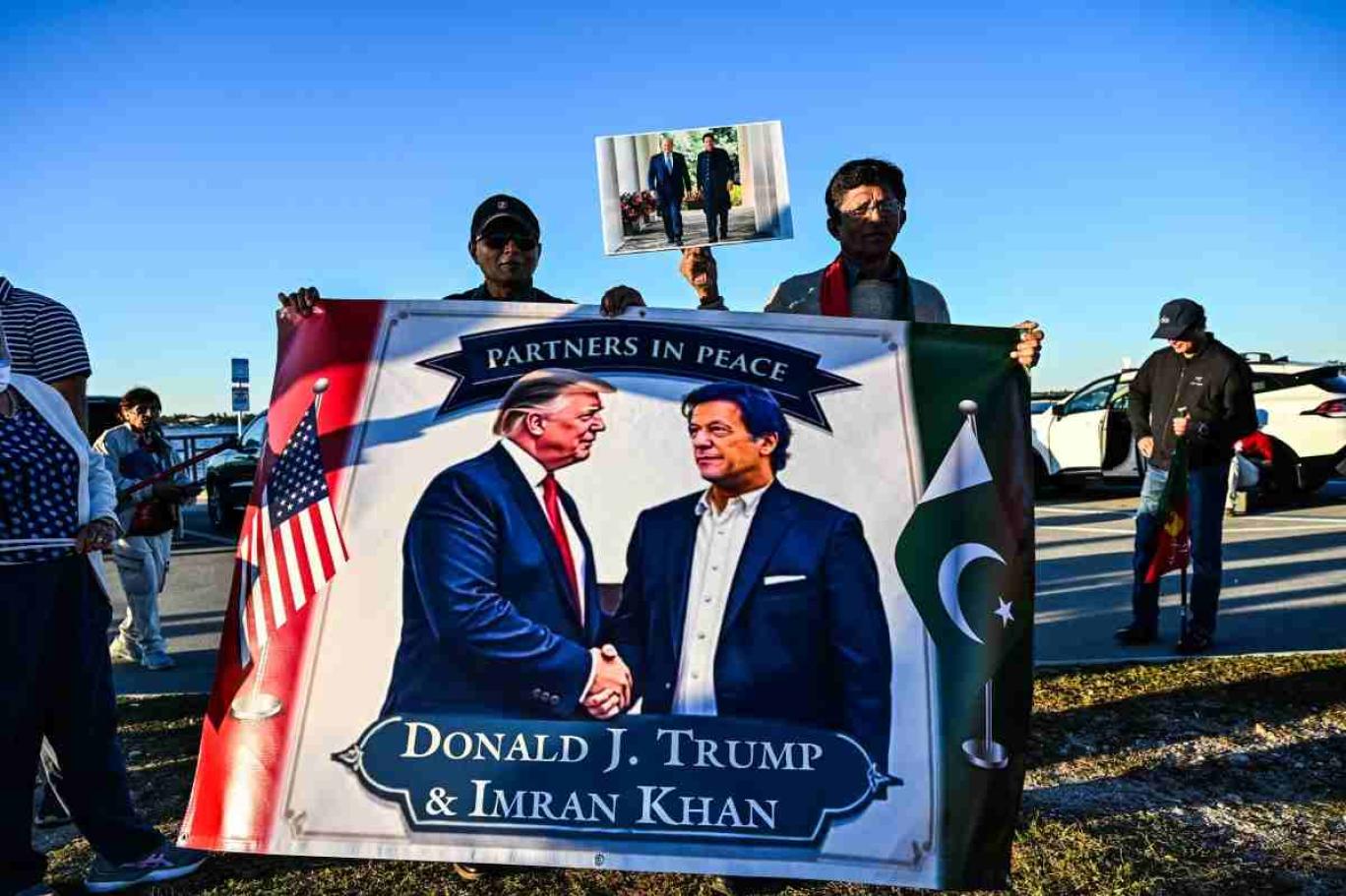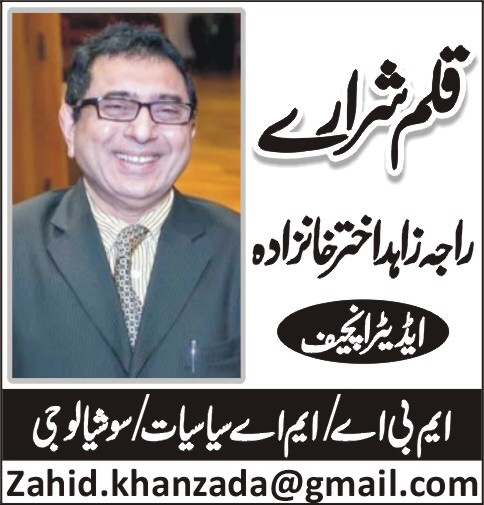Donald Trump, U.S. Interests, and Imran Khan: The Wait for a Political “Seventh Fleet”—Reality or Illusion?
By Raja Zahid Akhtar Khanzada
Among Pakistan Tehreek-e-Insaf (PTI) leaders and supporters, there exists a specific hope that Donald Trump, after taking the oath of office, might politically back Imran Khan and drastically alter Pakistan’s political landscape. Following Trump’s election victory, his supporters celebrated in Pakistan by waving American flags, while his allies in the U.S. campaigned rigorously during the elections, giving rise to such speculations. On November 24, during PTI’s last protest call, some supporters even staged a demonstration outside Trump’s Florida residence to draw his attention. This narrative has now become a hot topic for political debates, leading to questions: Is it really possible? Would U.S. policies and Trump’s personality allow him to intervene in Pakistan’s internal affairs by supporting a particular party or leader?
To understand the speculations surrounding Donald Trump, U.S. interests, and Imran Khan, we need to delve into the fundamental truths of politics and the complex philosophy of international relations. Whether local or international, politics revolves around power, interests, and principles, with each playing a unique role. Examining the circumstances surrounding Imran Khan’s ouster as Prime Minister, allegations were made against the U.S. administration for meddling in Pakistan’s internal affairs. According to The Intercept, a secret “cipher” through Pakistan’s former ambassador revealed that U.S. official Donald Lu expressed reservations about Imran Khan’s visit to Russia and Pakistan’s “aggressive neutrality” over the Ukraine war. It was reported that Lu warned of strained relations if the no-confidence motion against Khan failed, and reconciliation if it succeeded. Imran Khan declared this cipher as proof of a U.S. conspiracy, implicating his political opponents and the military. However, the U.S. government consistently denied these allegations, claiming no involvement in removing any Pakistani leader.

Given this background, it seems unlikely that Donald Trump would undo these developments. His policies have always been rooted in the “America First” principle. During his presidency, Trump’s actions prioritized U.S. interests over personal relationships. For instance, while Trump leveraged relations with Pakistan for strategic goals like peace talks in Afghanistan, these ties remained limited and conditional. The focus of U.S. policy in Pakistan has historically been the promotion of democracy, counter-terrorism, and regional stability—not supporting a particular political leader or party.
The PTI supporters’ belief that Trump might overturn the political tide in Pakistan appears unrealistic. Pakistan’s current political landscape—with the Pakistan Muslim League-Nawaz (PML-N), Pakistan Peoples Party (PPP), and the military on one page—presents a unified front against any external interference. This strong alliance acts as a formidable barrier that even Trump or the U.S. would recognize.
From a broader perspective, U.S. foreign policy rarely hinges on personal relationships but rather on geopolitical and geo-economic priorities shaped by its high-ranking officials, not the President alone. Furthermore, the alliance of PML-N, PPP, and the Army Chief solidifies Pakistan’s internal stability, making it unlikely for any external actor, including the U.S., to disrupt the status quo.
Imran Khan’s ouster was orchestrated through legal channels, aligning with U.S. interests at that time. Even though Khan maintained cordial ties with Trump during his tenure, especially on Afghanistan, these were professional, interest-driven relations. Expecting Trump to stand with PTI or Imran Khan disregards the foundational principles of U.S. foreign policy, which centers on America’s strategic interests.
Historically, U.S. interventions have always served its geopolitical objectives, whether in Iran, Vietnam, or the Middle East. The notion that Trump would back a single leader in Pakistan not only deviates from reality but also contradicts the fundamental principles of international relations.
PTI’s leadership must realize that political survival and progress hinge on internal reforms, democratic values, and public support rather than reliance on external powers. True success in politics stems from self-reliance and popular legitimacy, not shortcuts or external interventions.
Looking back at history, the 1971 incident with the Nixon administration’s “Seventh Fleet” serves as a poignant reminder. At that time, Pakistan’s military leadership saw a glimmer of hope in the fleet’s arrival to counter Indian aggression in East Pakistan. However, as the fleet turned away, hopes were dashed. Today, PTI supporters seem to be waiting for a “political Seventh Fleet” that may never arrive.
Ultimately, politics revolves around power and interests. Genuine success belongs to leaders who rely on principles, autonomy, and long-term strategies rather than fleeting expectations from external players. Expecting Trump or any global leader to reshape Pakistan’s political dynamics is akin to past disillusions. A nation’s strength lies in self-reliance and public confidence—cornerstones for building a resilient and independent democracy.




